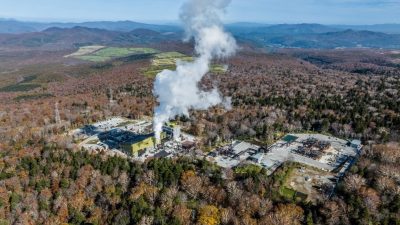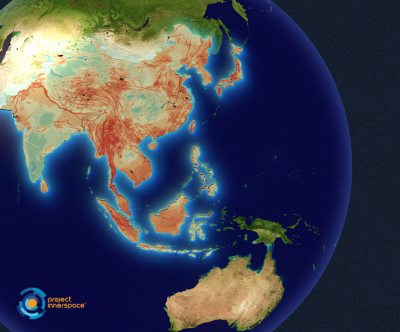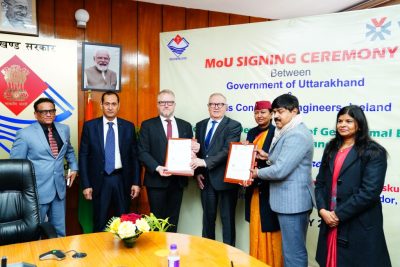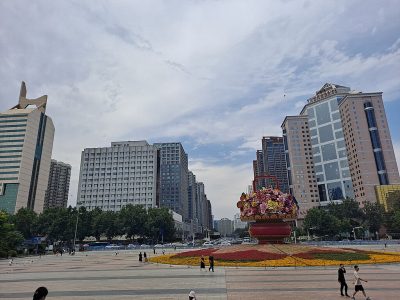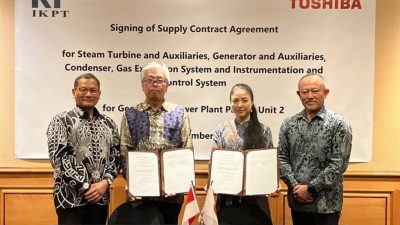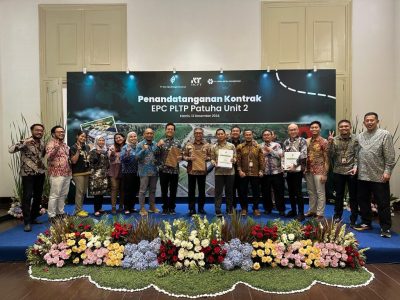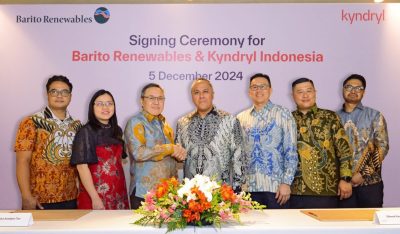UNLV receives grant to lead group in geothermal research in China
The University of Nevada, Las Vegas has been awarded a competitive grant to lead a coalition of universities in geothermal research in China beginning next year.
Reported from Nevada, the University of Nevada, Las Vegas (UNLV) has been awarded a highly competitive grant to lead a coalition of universities in geothermal research in China beginning next year.
The project, which will be funded by the National Science Foundation through the Partnerships in International Research and Education (PIRE ) program, is set to run over the next five years. It will be headed by UNLV ’s Brian Hedlund of the school of life sciences, in cooperation with eight other U.S. universities and six Chinese universities.
“This was a really, really competitive grant,” Hedlund said. “There were 15 awards out of 529 [applicants], so that’s about a 2.5 percent rate of success.”
The $3.75 million international project will allow UNLV to send 14 undergraduate students and seven graduate students to study microbiology in China’s largest geothermal field, located in Tengchong in the Western Yunnan Province. They also received funding to send six high school teachers.
Undergraduate students will commit 10 hours a week to research while fulfilling the UNLV component of the program and will focus on research in microbial nitrogen recycling, microbial cellulose degradation for biofuels, and genomics and metagenomics.
The China component will require 40 hours of research per week for eight weeks. It includes a fellowship award of $5,000 along with covering the costs of round trip airfare, food, and housing.
Students attending the first year of research will spend the summer working in labs at Tongji University in Shanghai and the next summer’s research will be through a university in Beijing.
Application requirements included adequate academic records, a demonstrated interest in biology, China and its culture. “The opportunity to do this research anywhere is exciting, let alone the chance to do it in an exotic setting,” said Joseph Peacock, an undergraduate student who was accepted Wednesday to the UNLV component of the program.
He is planning to apply for the China component as soon as the application process is opened. “Working together at Tongji University with scientists from another country would only reinforce the collaborative effort that goes into our understanding of life on this planet,” said Sean Tuggle, another undergraduate who was accepted to the UNLV component.
Prior to departing for China, undergraduate students will participate in a one-week crash course in Chinese language and culture, and upon returning, will participate in a poster presentation at UNLV , displaying their findings.
The university will also send seven graduate students for summer research in China. The students will spend five weeks at Shanghai University for an intensive course in Chinese language and culture.
Graduate students will attend two summer research sessions and, after the second session, will spend a semester at a Chinese university.
The project began as an attempt between Hedlund and some of his colleagues, notably Hailiang Dong of Miami University and Chuanlun Zhang of the University of Georgia, to create a collaborative effort between the United States and China to solve some of the biggest problems of geothermal biology.
“One of the problems is Chinese scientists and the public know a lot more about the U.S. than we know about them,” Hedlund said. “We made a list, a very short list because there weren’t that many, of hard mechanisms to get that collaboration going, and this was one of them, this was by far the biggest
one.”
The collaboration gives researchers an opportunity to compare notes between geothermal ecology in the United States and China, which allows them a more internationally comprehensive picture and helps them “to work toward a more global view,” Hedlund said.
“I understand the PIRE program is part of NSF’s efforts to build connections to researchers in other countries, and I would be proud to be a part of that effort,” Peacock said.
The research also aims to fulfill a social goal, strengthening the academic bonds between the two countries. With many economic and business leaders in the U.S. feeling uneasy about China’s role in developing clean energy research, Hedlund hopes to avoid competition and to forge a healthier link between the countries through academic collaboration. Hedlund hopes to avoid competition, and to forge a healthy link between the countries through academic collaboration.”
Source: UNLV Rebel Yell







